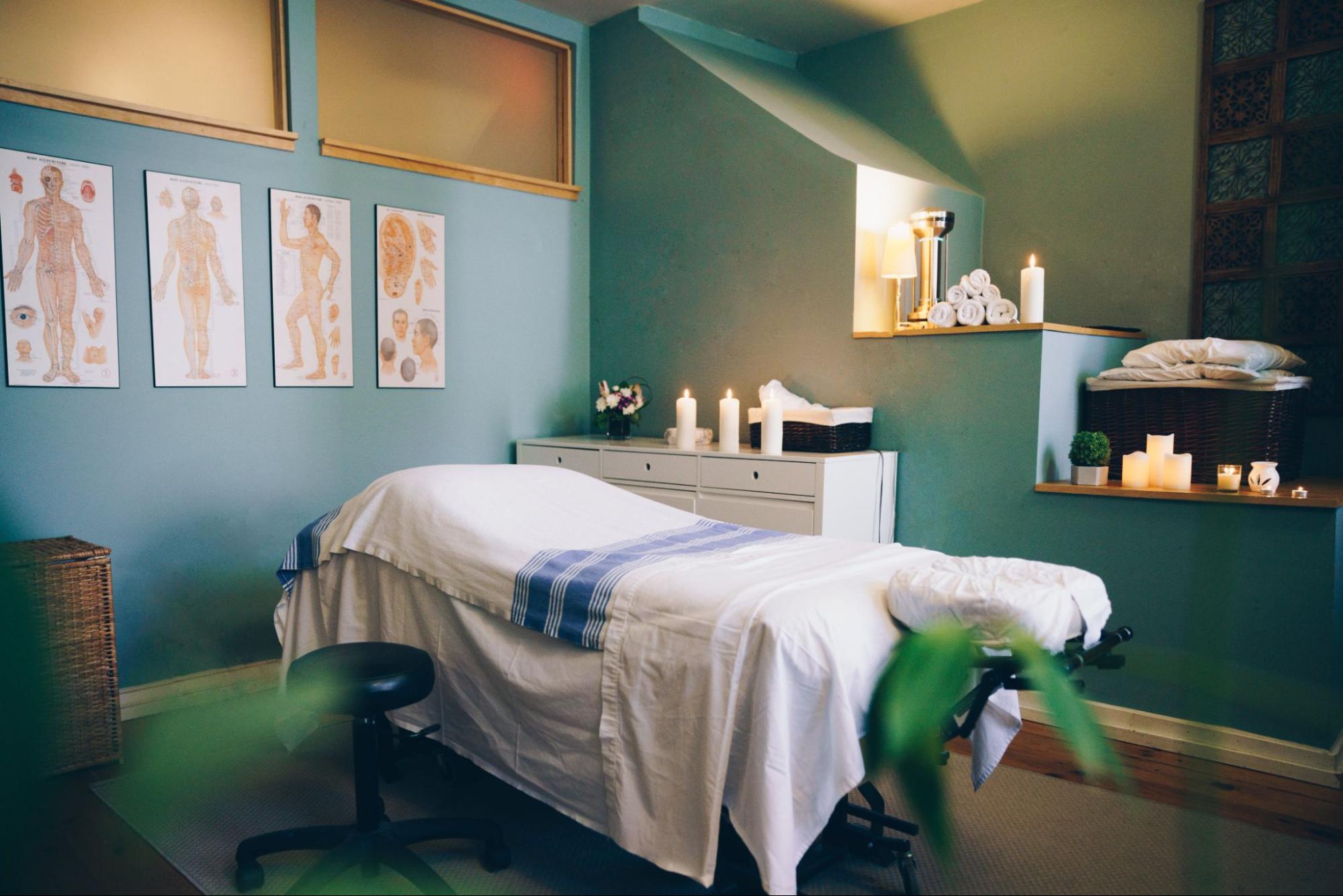Did you know that half of businesses are started from home? You can own and operate all kinds of businesses remotely, from an online store that you manage by yourself to large scale ventures with physical locations and teams of employees.
Ahead, discover 40 home business ideas to kick-start your entrepreneurship journey, along with guidance on how to make them work for you.
40 best home business ideas
- Buy products in bulk and sell them online
- Sell homemade products
- Start a dropshipping store
- Start a print-on-demand business
- Offer online services
- Teach online classes
- Monetize your expertise
- Grow an audience you can monetize
- Buy an existing small business
- Start a subscription-box business
- Turn your pet into an influencer
- Sell used items
- Play video games professionally
- Sell your art
- Become a virtual event planner
- Launch a photography business
- Start a beauty business
- Start an affiliate marketing business
- Start a day care
- Sell on marketplaces
- Become a social media manager
- Become a virtual personal trainer
- Offer bookkeeping services
- Design websites
- Start a dog-grooming business
- Become a pet sitter
- Become a freelance writer
- Manage properties
- Start a landscaping business
- Start a house cleaning business
- Become a personal chef
- Start a home staging business
- Run a mobile spa
- Offer therapy
- Run meditation sessions
- Teach journaling methods
- Be a professional organizer
- Edit podcasts
- Create a herbal product line
- Create a candle brand
1. Buy products in bulk and sell them online

When you’re starting your first home business, don’t reinvent the wheel. Instead, try an existing, reliable small business model, such as importing popular products in bulk and selling them individually for a profit.
Find products that consumers already want to buy, then purchase them by negotiating a deal with the wholesaler. After that, create an online store to promote your catalog and sell to customers.
The key to a successful home retail business is savvy product selection. Can you identify the next Stanley Quencher or fashionable beverage? Tips for sourcing profitable products include:
- Analyzing social media for trending products
- Importing products that are popular in foreign markets
- Serving the needs of a niche market
If your customers would benefit from in-person browsing, you can even use your home as a showroom. That’s how home retail business Artemis Design Co. got its start.
“I was living in the south end of Boston, and I had my living room just full of these products,” says owner and founder Milicent Armstrong. “I would have people come over if they wanted to look at something or try something on, and that’s how I made my first sale.”
Related article
How To Start an Online Store in 2025 (10-Step Guide)

Follow this step-by-step guide to set up an ecommerce website and start selling to customers today.
2. Sell homemade products

If you’re a maker (or know someone who is), consider turning that hobby into a business by selling your own creations. From homemade soaps and candles to handcrafted jewelry and artwork, the possibilities are endless.
Items crafted in your studio, workshop, or kitchen can become well-known products, with the right branding and marketing. Selling independent goods can also be cost-effective, as you won’t need to buy from wholesalers and can control nearly every aspect of production and pricing.
Craft brand Peg and Awl began as a way for husband and wife Walter and Margaux Kent to sell items they’d made using reclaimed materials in their home workshop. Today, their online store offers a wide range of products, from bags and journals to home décor items.
3. Start a dropshipping store

The first two tips in this list require you to buy or create inventory. But what if you want to start an online business without spending money on large amounts of stock?
Dropshipping is the go-to business model for home business owners who don’t want to deal with inventory. In a dropshipping business, retailers promote and sell products that are produced and shipped by a third party. In other words, a dropshipping supplier will give you a commission for making a sale, while they take care of storing and shipping the product to customers.
Many home dropshipping businesses find success by targeting a niche, such as "cute and kawaii merchandise" retailer Subtle Asian Treats. Curate products from different suppliers to create a collection of related items on your website.
Shopify dropshipping apps connect you with suppliers, so can source and import products into your online store.
4. Start a print-on-demand business

Print on demand is another home business idea that doesn’t require you to buy or hold inventory.
Print-on-demand services let business owners apply their branding and original designs to white label products. When you make a sale, the print-on-demand company will print and ship the item to the customer on your behalf.
There are many print-on-demand products you can sell: books, hats, backpacks, blankets, pillows, mugs, shoes, hoodies, phone cases, and more.
Many print-on-demand businesses focus on serving a specific niche or, better yet, a shared identity. Rebecca Lee Funk launched The Outrage, a women’s rights apparel brand that sells print-on-demand t-shirts. The business donates a portion of proceeds to non-profit organizations that work toward social causes.
5. Offer online services

If you don’t want to sell products online, how about selling a service? Service platforms may be even simpler to set up than retail businesses, because there’s no inventory to create or manage.
One way to develop a home service business is to leverage your existing talents. If your employment contract permits you to offer your skills independently, you could set up a website to sell your time and experience.
Monetize your DIY, technical, language, or musical skills with a website that offers assistance or lessons. Popular service-based home business ideas include:
- Freelance writing
- Virtual assistance
- Marketing
- Design
- Translation
- SEO consulting
- Web design and development
- Graphic design
Another benefit of service-based businesses is that you don’t necessarily need a large number of customers to make a profit. Depending on the service you’re providing, a handful of high-quality clients can be sufficient to support yourself full time while working from home.
6. Teach online classes

If you have a teachable skill, why not monetize and share that knowledge via an online course? Online audiences exist for almost any desirable skill, whether it’s English as a second language, advanced marketing, or everyday home maintenance hacks.
For example, If I Made is an online home business that sells video classes to creative professionals, such as “How to take wedding photos” or “Taxes for creatives.”
Cosmetics brand Yegi Beauty, on the other hand, combines online courses with a product catalog, to create a full shopping and learning experience.
When you deliver classes through a website, you can choose to offer live or pre-recorded content. You might provide live courses at a premium rate, while customers can purchase recorded sessions at a discounted price. If you prefer teaching small groups, consider mentorship, masterclasses, or an online tutoring business.
Alternatively, create a fully downloadable online course for purchase, be it a video walkthrough, templates, articles, or how-tos. Use a screen-recording tool to capture your voice while you walk students through the material.
Looking for a home business that you can set and forget? Try these passive income ideas.
7. Monetize your expertise

One of the biggest downsides of some service- or teaching-based businesses is that they take lots of time. If you need to be physically or virtually present to carry out your service, your ability to scale your business is limited to your daily schedule.
“Productizing” helps you take your service business to the next level, by creating physical or digital products that package your expertise and can be sold many times over. You can cater packages to your current customer base or find new target markets in adjacent spaces.
Gabriella and Andrew Morrison started their home-based business by packaging their expertise around tiny-home living. They sell courses and plans on StrawBale—operating everything from the comfort of their (very cozy) home.
Here are some ways to add service-based products to your business:
- Courses
- Designs
- Licensable assets (stock footage, photos, music, etc.)
- Downloadable reports
- Digital templates
- Merchandise
- Ebooks
8. Grow an audience you can monetize

If you’ve always dreamt of starting a blog, YouTube channel, Instagram account, or podcast, you could turn that idea into a home business by growing and monetizing a following.
Jordan Ferney, founder of Oh Happy Day Shop!, built an audience via blogging and later turned it into a fully fledged business from home. She designed her online business with the aim of spending more time with her family, and now sells products on her ecommerce site.
Similarly, Andrew Finn co-founded blog-turned-business Wait But Why. After amassing more than 300,000 subscribers and millions of visits, he added an online store to his website, selling products tailored for his already loyal audience.
Karen Kilgariff and Georgia Hardstark used Facebook groups to develop and nurture a community around their podcast, My Favorite Murder. After amassing more than 200,000 members, they added a paid membership tier for fans seeking additional perks.
Building a loyal audience requires patience, consistency, and focus. This isn’t the easiest way to start a home-based business (especially in the short term), but if you’re able to grow a following around something you love, it can be one of the most fulfilling.
9. Buy an existing small business

Some home business entrepreneurs don’t take part in sales at all. Instead, they buy and manage an existing business.
The cost of acquiring a business varies based on its state of health. Some businesses are sold while generating revenue, allowing you to simply take over.
Others no longer generate substantial revenue and may need rebuilding. However, they may also contain valuable assets like an email list, social following, online content, or brand reputation.
Physical retail stores may have inventory or equipment that comes with the sale.
10. Start a subscription box business

The online subscription box industry is forecasted to grow at an annual rate of 13% between 2025 and 2033. That growth has led to the emergence of direct-to-consumer subscription brands, as well as the adoption of subscription sales models by major brands like Sephora and Walmart.
If you’re able to curate desirable product selections, you can start a subscription business from home. For example, Ashley Reynolds bundled surplus products into subscription boxes to sell on her ecommerce site, Cloth & Paper. If you already run an ecommerce business, you could do the same to make use of otherwise dead stock.
Subscription boxes don’t have to necessarily be about selling. Haverdash is a subscription box company that rents clothes. When customers are finished using the items, they send them back—and Haverdash rents them out to another customer to generate more revenue.
11. Turn your pet into an influencer

Pet influencers are all over social media, inspiring thousands of likes with cute videos (and promoting subscription brands like BarkBox).
If you share your life with a pet, try turning them into a social media personality. You could grow their following, then connect with relevant brands to sign promotion deals.
Bodhi the Menswear Dog, a.k.a. the most stylish dog in the world, has made a name for himself on Instagram. Browse his feed, and you’ll see collaborations with big brands like Booking.com, Spotify, and Poly & Bark.
12. Sell used items

As consumers become more environmentally conscious, sustainable shopping options are growing in popularity. For example, the global secondhand market is expected to nearly double by 2028, reaching $350 billion.
COAL N TERRY is one home-based business that found success by selling vintage finds. After beginning in a college dorm, the brand now boasts a loyal following and celebrity fans.
You can start small with your own home-based resale business. Marketplaces like Poshmark and Mercari are great platforms for thrifting your unwanted clothing. You can also try Craigslist, eBay, or Facebook Marketplace.
13. Play video games professionally

Did you know that video gaming can make you money? Esports and video game streaming platforms like Twitch have opened the door for gamers to monetize their skills.
The esports industry alone is worth more than a two billion dollars, while leaked data from a few years ago showed that the best Twitch streamers earn millions per year.
Aside from becoming a sponsored pro gamer, you could create a gaming-based home business by becoming a Let’s Play streamer. Game developers will pay you to play their games and stream your reactions to your audience. You can also sell merch on Twitch to make further cash.
Twitch isn’t limited to gaming streams: Maxx Burman and Banks Boutté used the platform to launch an online festival where they celebrated video game art directors. They then repurposed this content for other channels like Instagram and YouTube.
After building a loyal audience, the two launched KitBash3D, where they sell 3D assets for video games and movies.
14. Sell your art

If you’re an artist, your creativity can become your livelihood. Whether you’re into painting, digital art, sculpture, photography, or music, there’s a market out there for your work.
Helen Levi, for example, is a Queens-based potter who turned her art into a business by selling ceramics from her online store.
Selling art from home involves more than just creating. You’ll need to dedicate time to promoting your work, building a brand, and connecting with your audience. Social media, art fairs, and online marketplaces such as Saatchi Art can be effective ways to get your work in front of potential buyers.
15. Become a virtual event planner

The virtual events market is expected to grow 18.8% each year until 2030. All those new events need coordinating and promoting, which is an opportunity for remote businesses.
If you have events management skills or experience, you might be able to build a home business as a virtual events planner. Perhaps you’re good with organization and love creating schedules? You may have a natural ability to network, negotiate, and bring people together. If so, these skills are invaluable when you’re trying to market yourself to customers.
Find a niche, either in terms of the types of events you organize (conferences, meetings, webinars, etc.) or the events’ purpose (personal parties, professional workshops, industry specific shows, etc.).
Getting familiar with event platforms like RingCentral and Whova will arm you with the knowledge needed to win your first customers. As your reputation grows, repackaging your services and selling them as a toolkit for others can add an extra revenue stream to your business.
16. Launch a photography business

There are several options for selling photos online, all of which can be highly competitive. One strategy is to sell stock photography, either by opening your own storefront or by submitting pictures to well-known marketplaces like Adobe Stock or Shutterstock.
If you’re interested in developing your own brand, and picking a photography niche, you could also start a career as a wedding, pet, fashion, or product photographer.
17. Start a beauty business

A popular niche for at-home businesses is health and beauty. You can work with a manufacturer to create your own cosmetics, or apply your branding to white label products.
It can pay to look beyond the current most popular cosmetics products to identify the next big beauty trends. With new tools and gadgets constantly hitting the market, there are countless dropshipping opportunities in this niche, from massage guns and smart mirrors to spa day reservations.
Consumer trend research shows customers are keen to buy from businesses that offer convenience in the form of multiple purchasing and delivery options. This holds true for beauty businesses, where customers are often looking to reorder products that they like.
18. Start an affiliate marketing business
Affiliate marketing is a popular home business model where you promote a brand’s products or services. When a customer buys a product through your affiliate link, you get a commission on the sale.

Deciding on the best affiliate program is where you’ll need to get creative. For example, some businesses choose to promote partner brands and products through Instagram Stories, while others create websites with relevant content.
19. Start a day care

A reliable day care is a perennial home business idea. If you’re good with children, see how many day cares exist in your area, and if you think there’s demand, consider opening one for your local community.
The daycare market is currently valued at more than $60 billion and is only expected to grow in the coming years.
Minimal startup costs are required to make the necessary alterations to your home and acquire the right licenses to open a day care. You’ll need to research child care licensing requirements, undergo mandatory background checks, and get the required health and safety training.
20. Sell on marketplaces

Amazon, eBay, and Facebook Marketplace are all popular, viable platforms for selling stuff from home.
Flipping items on online marketplaces is one of the easiest businesses to start: once you open an account, upload your listings, and set your prices, you’ll be on your way to selling your first item.
While selling an item on a marketplace may be relatively easy, building a reliable income stream from marketplace sales can be more difficult. Options for promoting products are limited, and with traffic largely determined by retail costs, you may be forced into price wars with other sellers.
To avoid the pitfalls of marketplace selling, open an independent online store alongside your Amazon or Etsy accounts.
With Shopify, you can easily sync your storefronts to stay on top of sales.
21. Become a social media manager
With some self-taught know-how, you could start a social media consulting business from your laptop. Demonstrate your social media skills with your own accounts and invest in subscriptions to a few social media management tools.
Take it from Rachel Pedersen, who leveraged her one million TikTok followers to quit her job as a hairdresser and run her social media business from home.
The hardest part of setting up a service-based business is landing your first customer. Increase your odds of finding a client by leveraging your existing network to let them know you now offer social media services. Use popular social platforms like YouTube and Instagram to show off your expertise with paid ads.
22. Become a virtual personal trainer

Personal training is estimated to be a $13 billion industry, with social media being a primary marketing channel for fitness professionals.
With the relevant certification to back up your services, it’s a matter of marketing your personal training packages to an audience interested in getting fit from home. Learn from how “fitfluencers” like Loisa Kurang and Triumph With Vin market themselves on Instagram.
Then, check out these low-cost alternatives to running paid ads to draw up a marketing strategy and promote your virtual services.
23. Offer bookkeeping services

If you’re good with numbers, an at-home bookkeeping business might be the way to go. The average bookkeeper’s salary is around $45,000 in the US, but as a freelance bookkeeper, you stand to earn more as you increase your rates and build your customer base. To do this, you first need to file paperwork to establish a limited liability company.
Again, social media is often the go-to place to promote your services. See how Zeal Bookkeeping uses Instagram Reels to offer accounting tips and information.
24. Design websites

While it’s never been easier to build a website, many people lack the design skills needed to create a satisfying browsing experience.
If you possess those skills, you could set up a website development agency from home. Platforms like Upwork and Dribbble are solid starting points for finding your first customers. As you finish jobs and collect testimonials and samples, it should become easier to land clients without the help of a marketplace.
25. Start a dog-grooming business

If you have space in your home, you could try offering dog-grooming services. It’s an in-demand service with a market size of $5 billion.
Pet grooming businesses can also be scaled, by establishing a brand and selling complementary products. Check out luxury pet spa Paw La La for examples.
The beauty of a dog grooming business is that you don’t have to start big. Leverage your network of local dog owners to find your first customers, and consider offering lower prices in exchange for testimonials.
26. Become a pet sitter

When pet owners go to work or leave for vacation, they need reliable and responsible sitters. If that sounds like you, then a sitting service is another potential pet business idea. There are low startup costs and very little overhead.
Apps like Rover and Wag allow sitters to find clients in their area. You can decide your own hours, and even whether clients will travel to your home. Depending on where you live, pet sitters can make up to $40,000 per year.
You may need certifications and insurance if you want to turn pet sitting into a fully fledged business.
27. Become a freelance writer

Businesses are always looking for persuasive writers. Log in to LinkedIn and look through the writing job postings. You’ll see companies are looking for everything from copywriters to journalists and bloggers.
According to ZipRecruiter, the average annual salary for a freelance writer is $48,000 a year—with digital marketing writers, ecommerce writers, and blog writers most in demand.
If you’re hoping to make money from home from creative writing, take inspiration from entrepreneurs like Sadaf Siddique and Gauri Manglik, who began as children’s book authors and later founded an online bookshop.
Using their experiences as readers and mothers, they made children’s books to tell diverse stories. Now, KitaabWorld is a place to both find and publish literature about different cultures and backgrounds.
The opportunities to make money from home through your writing are as limitless as your imagination. You could turn your pen to ebooks, a weekly subscription newsletter, or even sponsored social media posts.
Ready to get started? Build, run, and grow your ebook business with intuitive tools and dedicated support.
If you want to learn how to make writing a home business, check out these resources:
28. Manage properties

About 100 million people visit Airbnb.com each month, looking for somewhere to stay for work or a vacation. Tap into the tourism industry by turning your home into accommodation.
Alternatively, offer your services to other hosts as a rental property manager. Management companies coordinate bookings, schedule cleanings, and act as a point of contact for guests. You don’t need many funds to start, and there’s no certification necessary.
Renting property is one of the most popular sources of passive income. If you’re a beginner, you can learn from the experiences of other Airbnb hosts.
29. Start a landscaping business

Another task for which people often seek assistance and expertise is gardening.
The lawn and garden market generates more than $135 billion each year in the US. To see this pastime’s popularity, just take a look at garden designer Monty Don’s Instagram profile. Users flock to his page for tips on how to get the most from their green spaces.
A landscaping business can mean several things, from simple grass cutting to creating dream backyards with ponds and imported trees. Ensure you understand your client’s needs and check out the competition in your area.
30. Start a house cleaning service

While other people commute to an office, you could create a home business by cleaning their houses. The global market for home cleaning services is projected to reach $10 billion by 2026, with a variety of cleaning services in demand.
Don’t forget to acquire business insurance and perform the necessary checks on the employees who’ll represent your business.
31. Become a personal chef

Love cooking? Got some tried and tested family recipes? Transform your culinary passion into a business by becoming a personal chef. You can cook up a storm for clients right in their own homes, tailoring your services to their dietary needs and preferences.
As you grow, expand your menu of services with branded products, meal kits, or cooking lessons. You could even open a food truck or a website to sell food online. While it’s not exactly a home business, personal cooks get to spend time in their community instead of an office.
Cooking platform Truffle Shuffle scaled its business by providing a way for chefs across the world to connect with aspiring home cooks.
32. Start a home staging business

As a home stager, you’ll work with realtors and homeowners to make homes more appealing on the real estate market. A talented stager can transform a basic living room into a desirable space that gets potential buyers interested.
If you regularly get compliments on your home décor, try turning that ability into a business. No specific certifications are required, though a background in interior design or real estate could boost your credibility.
Check out staging companies like Fliphaus for inspiration.
33. Run a mobile spa

Bring the luxury of a spa into clients’ homes with a mobile spa business. Offering services like massages, manicures, and pedicures, you can create a relaxing spa experience with the added convenience of being near or in people’s homes.
Factor in that you will need to be certified to perform services like massages, facials, and other treatments.
34. Offer therapy

If becoming a licensed therapist interests you, there’s a wide range of popular paramedical treatments that you could offer from home. Therapies such as massage, acupuncture, or physiotherapy are all potential home business ideas.
Just like spa treatments, if you don’t have the space to host clients, you can also visit them. Platforms like Zeel connect users with licensed massage therapists who provide in-home services.
Again, you’ll need to comply with all local regulations and professional guidelines, and ensure you’re up to date with the latest techniques and trends in your field.
35. Run meditation sessions

As a meditation instructor, you can offer live sessions, pre-recorded meditation guides, or even a personalizable meditation app. No specific certification is required to teach meditation, but having a deep understanding of your practice and techniques will be crucial to success.
Also, you’ll need to create a calm, welcoming space for conducting sessions—whether it’s physical or virtual.
As you grow your business, consider offering specialized meditation sessions for different groups (like children or seniors) or focusing on specific areas such as stress reduction or sleep improvement. Notice how meditation business Mindspo offers a range of services to meet customer needs. They also market themselves via a meditation podcast.
36. Teach journaling methods

If you regularly journal or keep a diary, and have a method for staying committed, you could teach it to other people for a fee.
Ryder Carroll created his own journaling method that morphed into a home-based business idea. Now, he sells journal products and journaling advice on his website.
37. Be a professional organizer

If you love to create functional, clutter-free spaces, consider starting a home business as a professional organizer. You can help clients declutter their homes or offices, creating order and calm wherever you go.
Neat is a home-organization empire started by Molly Graves and Ashley Murphy. After realizing they shared a passion for organization, they created and branded a unique method for decluttering homes—which is now a franchised training program offered by professional organizers across the country.
38. Edit podcasts

Podcasting has become a mainstream pastime (or career option) in recent years.
For each podcast episode that’s recorded, an editor needs to cut together the various sections, strip out coughs and stutters, and refine the audio quality. If you have the skills and software to perform those tasks, you could make a living from home as a podcast editor.
Photo and video editing services can also be profitable home business ideas.
39. Create a herbal product line

If your family has passed a herbal remedy down the generations, or if you simply have an interest in natural treatments, you could make and sell herbal products from home.
For instance, Wooden Spoon Herbs was started by Lauren Haynes in her kitchen. She creates plant-based products using American-grown herbs and traditional methods. Her online store now sells a range of herbal teas, tinctures, and wellness products.
The brand’s website even has a quiz that customers can take to find the perfect herbal treatment for them.
40. Create a candle brand

Candle making is perhaps the classic home business idea. While often maligned, many entrepreneurs continue to find success by making, branding, and selling their own candles and fragrances.
The key to success in this industry is strong branding. Your brand should not only reflect the quality and uniqueness of your candles but also resonate with your target audience.
Take Brooklyn Candle Studio, for example. After buying a candle-making kit in 2013 and discovering a talent for the craft, founder Tamara Mayne began her business from her studio apartment, selling her candles at local markets. A year later, she quit her job to work full time on Brooklyn Candle Studio.
If you also possess the talent to mix and match scents, you could channel your inner Jan from The Office and create a candle company. As your brand grows and evolves, there may be opportunities to extend your product line to include related items, such as scented diffusers, room sprays, or bath oils.
Serious about candle making? Here’s how to start a candle business.
How to start a home business
Once you have an idea that fits your skills and experience, it’s time to get to work on building your new home business.
While you’ll no doubt encounter challenges, the process of starting a business doesn’t need to be overwhelming. Here are the five basic steps you’ll need to follow. (Working with a small business lawyer and accountant can also be helpful.)
- Come up with your own business idea
- Create a business plan
- Start the legal process
- Open a business bank account
- Start providing your products or services
1. Come up with your own business idea
The first step in launching a home business is coming up with a unique idea that gives you a competitive edge.
Whether you choose one of the tried and tested businesses above, or develop an original concept, try to think critically about your idea.
Ask trusted friends and industry experts to debate your business and poke holes in your plan, to make your idea as robust as possible.
2. Create a business plan

A business plan puts your idea into a recognizable and actionable structure. To make a plan, put together information including:
- A company overview
- Your product or service offerings
- Your target audience
- A competitor analysis
Easily create your own business plan using a template like the one below:
3. Start the legal process
Choose your business type, apply for your business license, set up your legal entity, and make sure you have all the proper paperwork.
You may consider hiring the help of a small business lawyer to ensure you’re correctly setting up your business’s legal entity. There are four main types of business entities:
Speaking to an attorney can help you decide which type of business is best for your needs, as well as making filing the paperwork easier.
4. Open a business bank account
Keeping your business finances separate from your personal finances will make taxes less stressful. There are a number of institutions you can turn to for opening your business account, so don’t be afraid to shop around for the best fit for your needs.
At minimum, you’ll want to open the following:
- A business checking account for revenue
- A savings account to hold money
- A business credit card for expenses
Again, speaking to a professional can be a big help. Consider searching for a local accountant who can help you make informed decisions when it comes to opening your business accounts.
5. Start providing your products or services
Finally, it’s time to start selling! If you’re creating an ecommerce business where you sell products online, Shopify makes it easy to build and run your store.
What are the pros and cons of starting a home business?
Home businesses can be started and operated from your personal residence. They might be full-time pursuits or side hustles, and often involve the use of an ecommerce platform to sell products online.
Most home business models are designed to be light on infrastructure, so you don’t need to hold lots of inventory, hire employees, or rent a physical location.
Like every business model, however, there are pros and cons to consider when deciding whether a home-based business is right for you:
Pros of running a home business
- Home businesses often have few overhead costs, including office rent or warehousing fees.
- You may be able to claim tax deductions as a home business owner.
- With ecommerce, you can choose to target a local or international market.
- Working from home may improve your work-life balance—great for parents or retirees seeking additional income.
- You can create a family business where your relations or spouse can help out.
Cons of running a home business
- You’ll likely need dedicated office space to work, store equipment, or hold inventory.
- It’s up to you to meet regulations for your industry, such as food hygiene standards or holding relevant permits.
- You may be competing with large, established businesses that can access extra capital.
- Working from home offers freedom, but it can also be lonely.
When you use an ecommerce platform like Shopify, you have the tools needed to build almost any home business.
Find the perfect home business ideas for you
The best home business idea for you won’t be the same as for others.
Succeeding as a small business entrepreneur requires knowing where your strengths lie—and which business models fit with your skills and schedule. Could you turn your experiences as a parent into a successful business, or does your industry knowledge make you an in-demand consultant?
Technology has made almost any business remote-friendly, enabling you to interact with suppliers, employees, and customers from your home.
Once you have an idea, start small, and always make your customers’ needs your top priority.
From first-time sellers to global retailers, Shopify works for everyone. See plans and pricing.
Read more
- How to Start a Dropshipping Business- A Complete Playbook for 2024
- How to Start a Candle Business (with Examples)
- How To Source Products To Sell Online
- AliExpress Dropshipping- How to Dropship From AliExpress
- Unlock Recurring Revenue with a Subscription Business Model
- How Do You Pick the Best Theme For Your Online Store? Take Our Quiz
- The 13 Best Dropshipping Suppliers in 2024
- What is Shopify and How Does it Work?
- 12 Hobbies That Can Make Money
- How To Make Money on YouTube: 7 Simple Ways (+Video)
Home business ideas FAQ
How do I start a small business at home?
Starting a home-based business involves several steps:
- Identify a business idea: Find a niche that suits your skills and passion.
- Create a business plan: Outline your goals, target market, competition analysis, marketing strategy, and financial projections.
- Develop your product or service: Ensure it meets market standards and customer needs.
- Secure funding: If necessary, explore funding options such as personal savings, loans, or Shopify Capital.
- Choose a business structure: Determine whether a sole proprietorship, partnership, or LLC best fits your needs.
- Apply for licenses and permits: Check local regulations to ensure legal compliance.
- Open a business bank account: Keep your personal and business finances separate.
- Get business insurance: Protect your business from potential risks.
- Implement a marketing strategy: Utilize SEO, content marketing, and social media to reach your target audience.
What are some low-cost home business ideas?
Starting a home business doesn’t have to be expensive. Here are a few low-cost online business ideas:
- Blogging: If you have a passion for a specific topic, you can start a blog and monetize it through advertising, sponsored posts, or affiliate marketing.
- Virtual assistant: Offer administrative services to businesses remotely.
- Freelance writing or design: If you have a knack for writing or design, offer your services to businesses.
- Home tutoring: If you excel in a particular subject, consider offering tutoring services.
Which home business is most profitable?
Professional service-based businesses, such as consulting, programming, or design services, often yield the highest profits due to low overhead costs and minimal startup capital.
What kind of business can I start from home?
You can start a wide variety of businesses from home, including:
- Selling homemade crafts or products
- Providing specialized online services
- Launching a subscription box service
- Building and monetizing a dedicated audience
- Establishing a dropshipping store
- Initiating a print-on-demand business
- Starting a freelance writing career
Which business in the easiest to start from home?
Some businesses require less startup effort and capital, such as:
- Dropshipping
- Print-on-demand services
- Selling pre-owned items
- Creating and selling homemade products
- Offering specialized services
How can I market my home business?
Marketing your home-based business is crucial for its success. You can use digital marketing strategies like SEO, content marketing, social media marketing, email marketing, and pay-per-click advertising. Also, consider leveraging local SEO strategies to target customers in your area.
What legal considerations should I keep in mind when starting a home business?
It’s important to understand the legal requirements for your home-based business. These may include obtaining licenses and permits, understanding zoning laws, choosing the right business structure, and ensuring data protection and privacy. Reach out to local government and industry organizations for advice.
How can I balance my home and work life?
Balancing home and work life when running a home-based business can be challenging. Consider setting dedicated work hours, creating a separate workspace, taking regular breaks, and setting boundaries with family members.
How can I scale my home-based business?
To scale your home business, you may need to invest in more advanced technology, hire employees or freelancers, expand your product or service offerings, or explore new markets. It’s important to plan your growth strategy carefully to ensure sustainable expansion.





